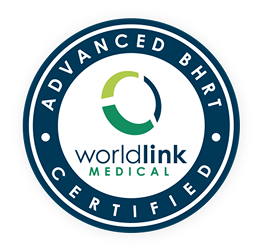Peptide therapy is quietly becoming one of the most talked-about options in regenerative medicine. People are exploring it to boost energy, fine-tune hormone balance, sharpen focus, and even improve skin and muscle tone.
Many people are curious about how peptides might support their health goals. Let’s unpack what peptide therapy really is, how it works, the benefits people are seeing, and what you should know before trying it.
What Is Peptide Therapy?

Peptides are short chains of amino acids. These are natural compounds your body makes on its own. They act like signals between cells, directing everything from healing tissue to regulating hormones to protecting the immune system.
Peptide therapy taps into this communication network. It introduces carefully selected peptides that guide the body toward performing specific tasks better, whether that’s repairing damage, burning fat, or enhancing cognitive clarity.
How Peptide Therapy Is Administered
Depending on your goals and the peptide itself, therapy can be delivered in a few ways:
- Injections
- Creams
- Nasal sprays
- Capsules
How Does Peptide Therapy Work?
When a peptide enters the body, it binds to specific receptors on your cells. That connection sends instructions, telling the cell to do something it already knows how to do, just more efficiently. Every peptide has its own unique “message.”
This is why peptide therapy can be customized to help with very specific health goals. Maybe you want to improve metabolism, speed up recovery after workouts, or simply feel more mentally sharp. Whatever your goal, there is likely a peptide protocol for that.
But to do it right, professional guidance is a must. Lab testing and tailored recommendations ensure the peptides chosen actually align with your biology.
Does Peptide Therapy Actually Work?

The research behind peptide therapy is expanding, and while not every peptide is FDA-approved for every use, many have shown real potential in studies.
Some well-researched peptides include:
- BPC-157: Known for supporting tissue healing and gut health.
- CJC-1295: Often used to stimulate growth hormone production.
People who use peptides often say they feel:
- More energy throughout the day
- Better muscle tone and less body fat
- Increased mental focus/concentration
- Faster recovery from physical strain
Some notice changes in a matter of weeks, while others take a bit longer. It all depends on the peptide, the dose, and where your health stands to begin with.
What Are the Benefits of Peptide Therapy?
Peptides can be used to support a wide range of goals, including:
- Optimizing hormones for better balance
- Supporting deeper sleep and mental clarity
- Enhancing fat metabolism and body composition
- Refreshing skin texture and promoting hair growth
- Improving muscle recovery and physical performance
- Bolstering the immune system and reducing inflammation
Is Peptide Therapy Safe?
When managed by a qualified provider, peptide therapy is generally safe. Most side effects, if they do occur, are mild:
- Redness/irritation at the injection site
- Occasional headaches
- Nausea (depends on the peptide used)
The Risks of Unregulated Use
Ordering peptides online or from shady suppliers is a gamble. Without regulation, you can’t be sure what you’re really getting or if it’s safe. This is why partnering with a healthcare provider is so important. They ensure the peptides you take are legitimate, properly dosed, and right for your health profile.
Who Should Not Take Peptides?

Peptide therapy isn’t right for everyone. Always consult a medical provider to confirm eligibility. In general, though, those who should avoid peptides include:
- Currently in cancer treatment
- Pregnant or breastfeeding
- Living with severe heart, liver, or kidney disease
- Managing diabetes (Type 1 or 2)
- With a history of irregular heart rhythms
Peptide Therapy: Common Questions Answered
Do I need a prescription for peptides?
Yes, peptides should always be prescribed by a healthcare provider to ensure proper use
Are peptides legal in the USA?
Some are legal with a prescription. Many are not available over the counter.
Which peptide is best for weight loss?
It depends, but combinations like CJC-1295 with Ipamorelin are often used to support fat loss by increasing growth hormone levels.
How soon can I expect results?
It varies, but many notice benefits within a few weeks. Your specific response depends on the peptide and your health starting point.
Can I buy peptides over the counter?
No. Legitimate peptides require a prescription. Anything sold over the counter is likely unregulated and unsafe.
Is Peptide Therapy Right for You?
Peptide therapy isn’t a quick fix, but for the right person, it can be a powerful tool for better energy, sharper cognition, faster recovery, and more balanced health.
If you’re still searching for answers, it may be worth exploring peptide therapy for menopause and those looking to improve the quality of their life. With the right provider, you can determine whether this treatment aligns with your needs and supports your long-term well-being. Call 617-431-6140 today to learn more or schedule your consultation.



